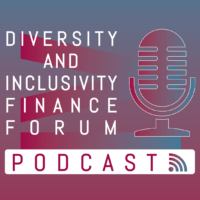
Speaking on the Diversity and Inclusivity Finance Forum (DIFF) podcast, the bank’s head of customer acquisition said the sector needed to “stop being lazy” with recruitment so talent pools could be more open and diverse.
Green said: “We need to stop thinking ‘oh I need a business development manager (BDM) in my team, what other BDMs are out there?’ because that doesn’t get you a diverse mix in an industry that’s already struggling.”
She said it was down to the recruiting manager to push for diversity and make sure the right people were being considered for a role.
“That individual manager has to have the responsibility of pushing back and saying, ‘no I’m not just taking five CVs, I want you to go out and find me a much better representation of the UK’,” she added.
Green said people should not always be employed on the basis of carrying out a similar role as the job applied for but based on skill.
She said: “What we need to do as an industry, particularly in the mortgage industry, is go out and really recognise what the transferable skills are. Recognise what we want from an individual.”
Aimée Gaudin, marketing and diversity and inclusion consultant and co-founder of Become, said a more diverse talent pool increased the overall chances of a minority getting recruited.
She added: “If there’s only one ethnic minority in a talent pool, they have virtually zero chances of getting hired. Whereas if there’s two ethnic minorities in a talent pool, their chances are 170 times greater, which is insane.”
Intersectionality and understanding
Intersectionality is the acknowledgement that some people have more than one characteristic that puts them in a minority class and could result in them facing multiple kinds of discrimination.
Gaudin said some people did not agree with the theory of intersectionality as they feel it simplifies them and their experiences.
“That can be quite damaging actually, to be defined by a particular group experience, which is usually about your identity or some kind of oppression that you don’t identify with for whatever reason,” she said.
She mentioned her sister, who is also mixed heritage Jamaican and Caucasian, but “white passing”, saying she may not associate with some discriminations faced by people of the same demographic.
However, Gaudin said the theory could work if multiple layers were addressed and included class, wealth, age and education as well.
“I do agree with intersectionality as long as we make that judgement and understand that no two people’s experiences will be the same,” she added.
Green said as allies, it was necessary to speak with people about their experiences and to not make assumptions.
However, she said it was important to ask questions without fearing saying the wrong thing, but also without being offensive.
Gaudin said this could be helped by setting up a diversity and inclusion committee at work, making sure everyone has the space to share their thoughts if they volunteer to do so.
She also said to take note of how minority groups within companies who were part of coalitions such as African and Caribbean associations or LGBTQ+ groups interacted not only among themselves, but with each other.
Gaudin added: “If those conversations are happening behind closed doors, then it’s just people with similar experiences and outlooks who are then just feeding their own perspectives, so they have the same blind spots.
“That’s not the thing that’s going to change mindset and help to instigate change. In the workplace, you need people who want to join that conversation, who want to be allies and understand new perspectives.”















